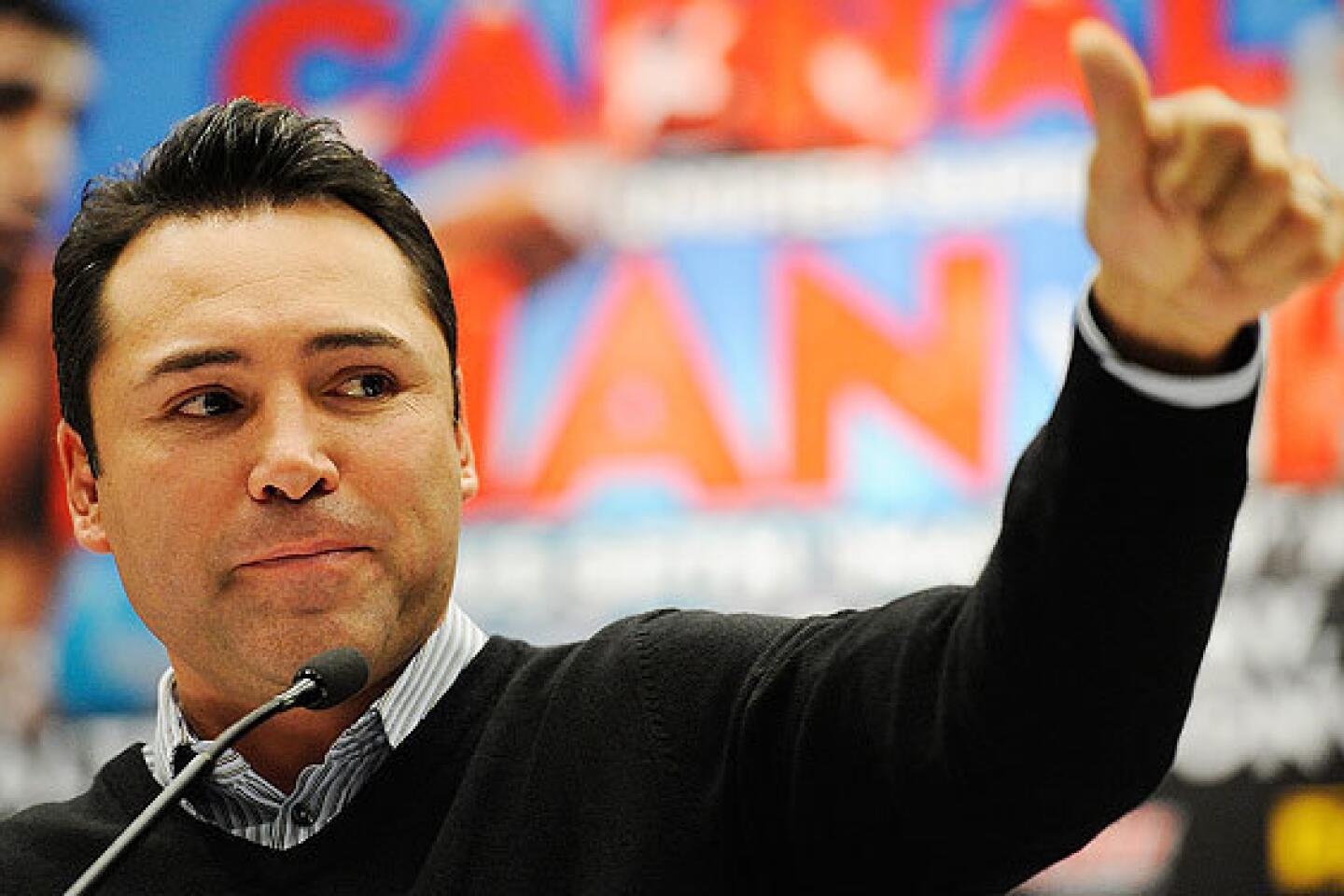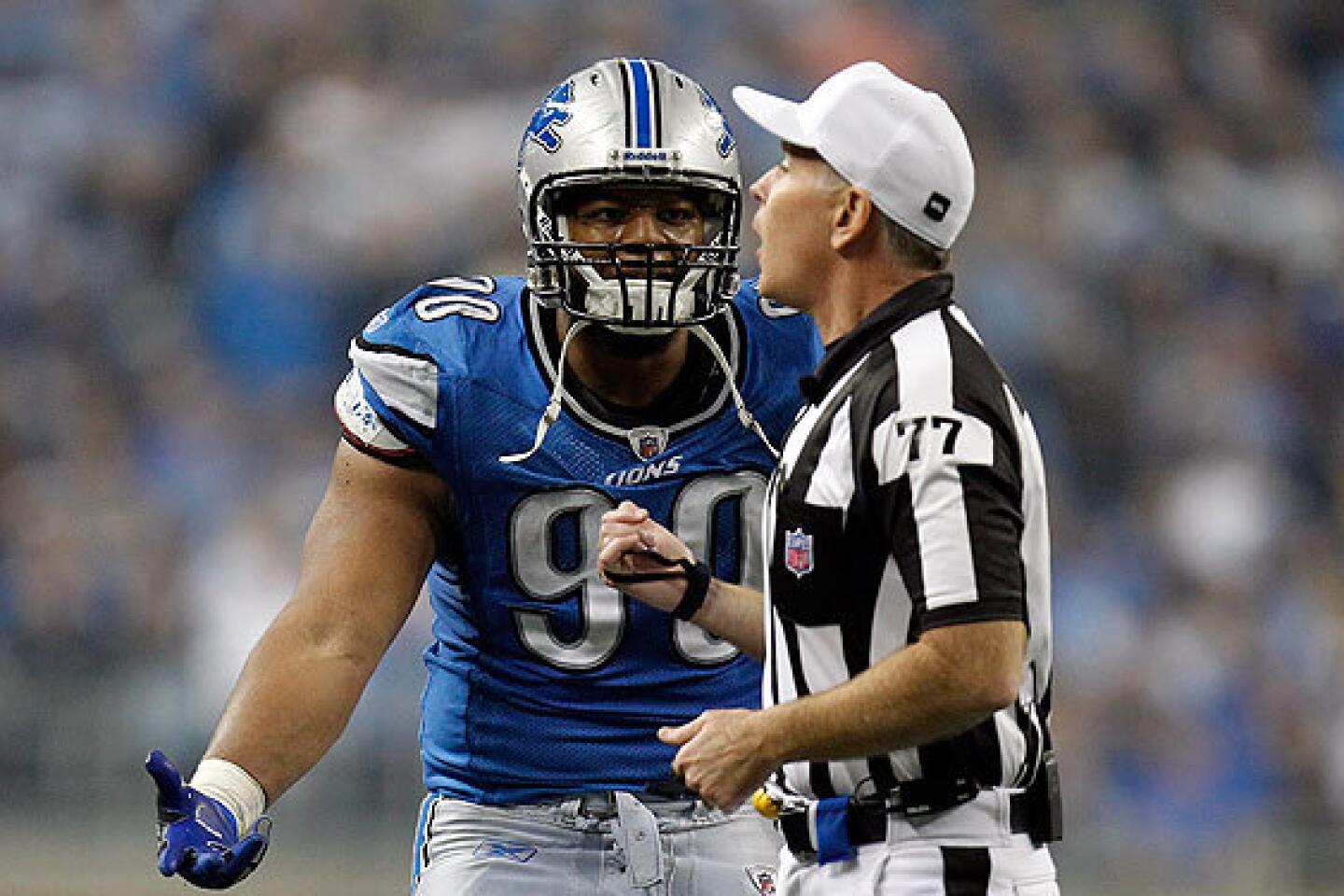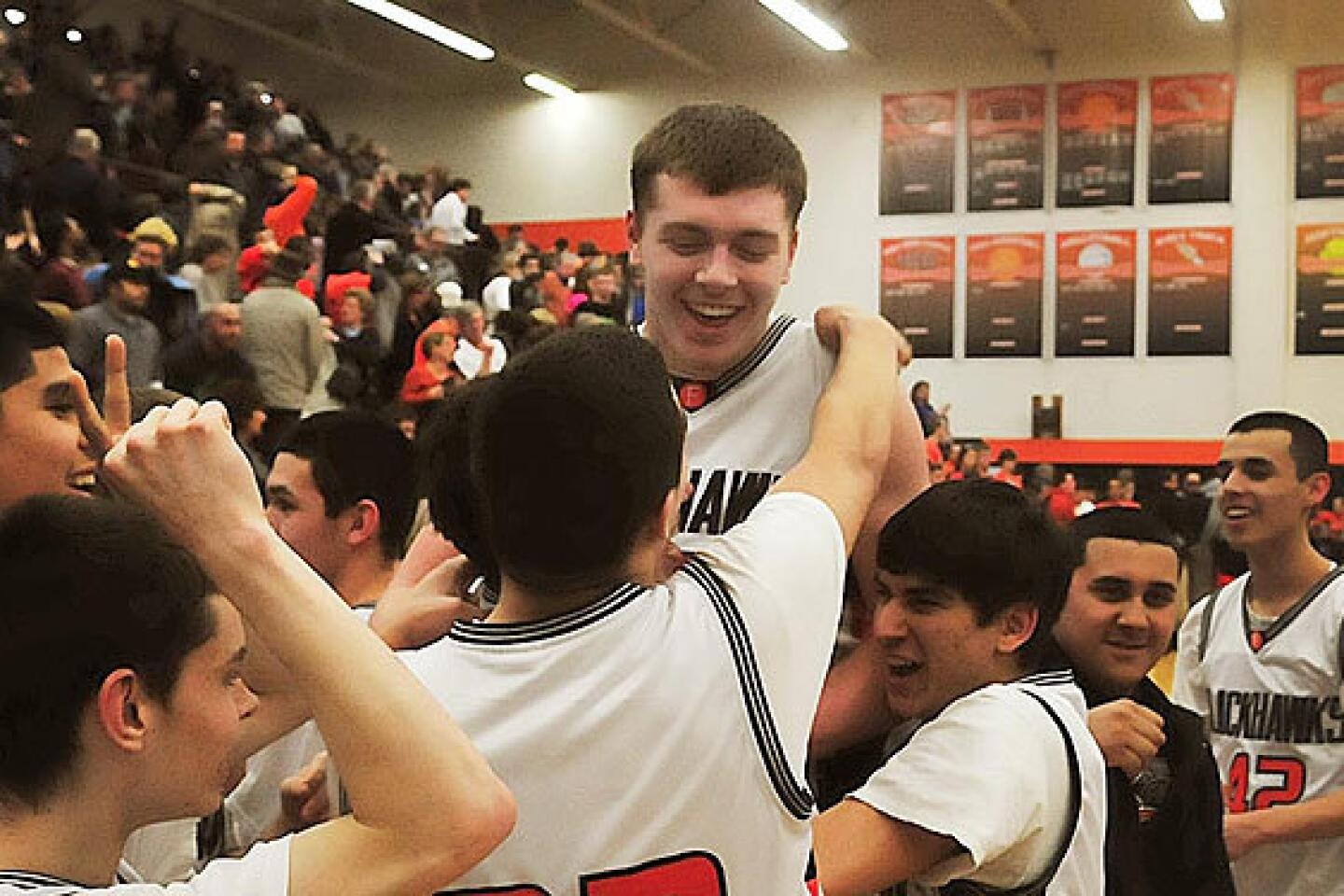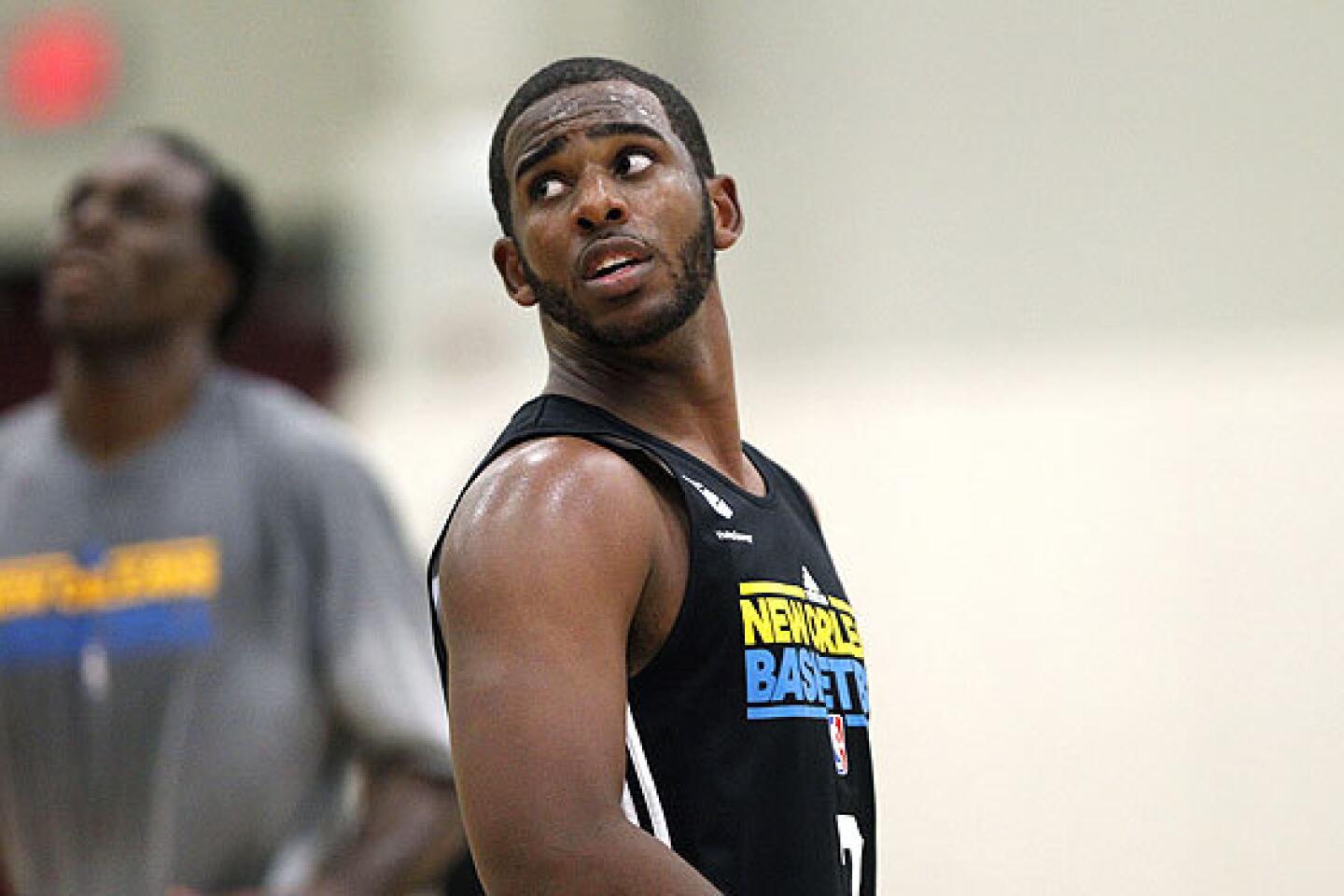Tennessee’s Pat Summitt sticks to game plan in Alzheimer’s fight
- Share via
Pretty much everyone who wanders into Pat Summitt’s office or visits her basketball practice these days has learned to fear the iPad. The coach keeps her tablet filled with brain-wrenching games.
Crossword puzzles and Sudoku. Math quizzes and memory tests.
“When people come by,” said Tyler, her son, “she gets them to sit down and try one of those things.”
It was seven months ago that doctors diagnosed Summitt with early-onset dementia, Alzheimer’s type, an incurable brain disease that affects memory, thinking and behavior.
Summitt chose to go public with her affliction and now the Tennessee Lady Vols, who face UCLA on Saturday, have become much more than a sports story.
Think back to when Magic Johnson announced he was HIV-positive and fans expected the worst. Something similar is happening with the 59-year-old Summitt.
This is an iconic figure, a pioneer of women’s athletics who has 1,077 victories on her resume, more than Mike Krzyzewski or Bob Knight or anyone else in the college game. People are watching to see if that famous stare goes vacant or her razor-sharp mind turns dull.
Maybe that’s why Summitt delights in challenging them to a computer game.
“Yeah, we’ve played,” said Holly Warlick, her long-time associate head coach. “She kills me every time.”
The game plan
Facing the fight of her life, Summitt has chosen to focus her energy on basketball and health. That means no interviews for the time being, but she encourages friends and family to speak for her.
They say the early signs of dementia might have gone overlooked because the preternaturally busy Summitt had always misplaced her keys or forgotten where she parked her car.
But then her jam-packed schedule — meetings and practices, booster club speeches and news conferences — became too much.
“She just wasn’t multitasking like she used to,” Tyler said. “She was doing four things at once instead of seven.”
Her staff noticed that she would forget some small detail about a high school recruit they had discussed the day before. That might have been understandable with another coach, but not Summitt.
“Pat was always a machine,” assistant Dean Lockwood said. “Normally, she would remember everything we talked about.”
Last May, a trip to the Mayo Clinic confirmed the worst. Not surprisingly, there were a few days of anger and denial. Then came another predictable response.
“She always has a game plan,” said Billie Moore, the former UCLA coach who has been Summitt’s mentor and friend for many years. “She thinks that if she follows her game plan, she can control whatever’s going on.”
Summitt has attacked dementia with the same tenacity that fueled her career, from Tennessee farm girl to college and Olympic athlete, from 22-year-old rookie coach to living legend.
The first step was easy. Her style has always accentuated honesty — sometimes brutal honesty — so she wasn’t about to hide this disease. Summitt called a team meeting.
It was late August, the season still weeks away, and the Lady Vols wondered if they were in trouble. Forward Vicki Baugh said: “We had no idea.”
Summit broke the news, then made two promises.
“I’m not going to forget your names,” people in the room recall her saying. “And I’m not going to stop yelling at you.”
Her players were emotional, Baugh standing up to say: “We’ve got your back.” Others asked how they could help, but Summitt’s game plan was already in motion.
The coach takes various medications in hopes of slowing dementia’s progress. She watches what she eats, does yoga and keeps her mind active with those iPad games.
“She plays them all the time, and she’s good at them,” Baugh said. “Those games are hard.”
Humor is another part of the approach. If someone around her forgets to do something, she quips: “I guess I’m not the only one with dementia.”
The disease comes in handy from time to time.
“If there’s something she didn’t want to do,” Warlick said. “She’ll just pretend that she forgot.”
Small changes
Fans might have noticed a difference this season, watching the sixth-ranked Lady Vols forge a 6-2 record against tough preconference competition.
At the start of each timeout, the coaches gather to decide on their message to the players. After that, Warlick usually runs the huddle.
“This didn’t happen overnight,” she said. “Pat has always been trusting of her assistants.”
It helps that her staff has been with her for years. They know the program top to bottom and can step in for all types of duty.
That means taking over Summitt’s speaking engagements and much of the recruiting chores. Warlick focuses on defense during practices while Mickey DeMoss handles the offense.
Lockwood compares Summitt to a football coach who used to be all over the field, jumping into defensive line drills, then demonstrating technique to the running backs.
“Now she’s like a coach in the tower,” he said. “Every so often, that bullhorn comes out and a player gets blasted.”
Her assistants say it would be a mistake to think she is any less involved.
Earlier this week, she called a defensive change that keyed a tough victory over No. 11 Rutgers. Summitt still rides the officials from the bench and has kept her promise to the team, the one about staying tough.
“I got that stare in the DePaul game the other night because I wasn’t rebounding,” Baugh said. “There was nothing different about it.”
Open and positive
The list of celebrities who have gone public in their struggle with dementia is short. No one saw much of Ronald Reagan or Charlton Heston after it was announced they had the disease.
From the very start, Summitt was determined to keep coaching and remain in the open. She wanted to put a face on Alzheimer’s, much like Magic did with HIV.
“It was important for her to do this,” Tyler said. “She wanted to show others that this is OK and it’s not something you have to change your entire life for.”
Her decision could have a ripple effect for an estimated 5.4 million Americans suffering from this affliction.
“One of the things that has been true with Alzheimer’s disease over the years is that there is a lot of stigma attached to it,” said Angela Geiger, chief strategy officer for the Alzheimer’s Assn. “Watching Pat Summitt be such a vibrant, powerful person will help reduce that stigma.”
The coach has received standing ovations in arenas across the country. Moore recently visited her and was amazed by the mail “from so many people who aren’t fans, who have nothing to do with basketball.”
With that Type-A personality, Summitt occasionally gets frustrated at having to cut back. And because dementia affects each victim differently, she faces an uncertain future.
“You can learn about so many things in coaching, like how to attack a gimmick defense,” Lockwood said. “There is no road map for this, no blueprint.”
Still, Summitt has found a way to persevere.
Her players are working harder than ever. Baugh explained: “We can’t say we’re tired in practice because we see our coach fighting. We have to get tougher, just like her.”
Tyler says he has been inspired by his mother. The Tennessee assistants are surprised that their boss has learned to laugh more often.
“Her resilience is amazing,” Warlick said. “She has this very calming effect on people.”
It is all part of the game plan in this, her toughest season. Keep the team moving forward. Keep everyone composed and focused.
Just don’t let her pull out that iPad.
twitter.com/LATimesWharton
More to Read
Go beyond the scoreboard
Get the latest on L.A.'s teams in the daily Sports Report newsletter.
You may occasionally receive promotional content from the Los Angeles Times.
































